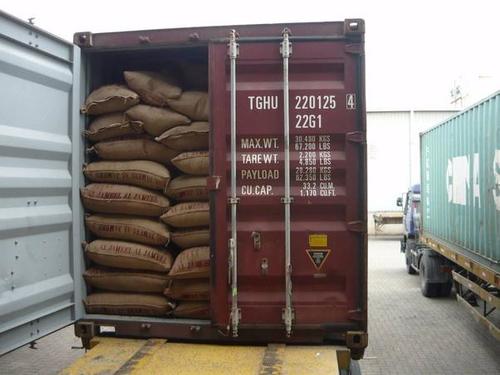"It's Systemic" - Coffee Consumers Face Soaring Prices As Shipping Costs Surge
Shipping bottlenecks created by the pandemic have disrupted global supply chains. There's currently an imbalance of shipping containers around the world that has resulted in steep transportation costs. The latest to complain about sharp shipping inflation are US coffee processors who warn retail prices may have to rise, according to Reuters.
Coffee processors of all sizes are alarmed about higher freight costs. Mid-sized and smaller roasters could be hit the hardest. Even large firms like Peet's (PEET) and J.M. Smucker Co (SJM) said they are battling with rising costs.
"'There are supply constraints, not because of production, but simply hurdles brought upon us by COVID-19 and safety guidelines. It is a systemic issue,' said Jorge Cuevas, an executive at Sustainable Harvest Coffee Importers in Portland, Oregon.
"'It is now more expensive than in the last five to 10 years to bring coffee to the consumer,' Cuevas said.
Coffee companies pointed to transoceanic shipping disruptions, such as the container shortage, something we first noted last September that pointed out demand for ocean freight out of China was "leading to equipment shortages in Asia." This caused a lopsided trade balance with the East as products from China rushed to the US while containers piled up in Western countries with very few products sent back, resulting in shipping delays and surging container costs.
"The container cost is a major issue in the coffee market," said Rabobank's analyst Carlos Mera. He said routes from Southeast Asia to Europe and the US are experiencing higher shipping costs because of the shortage. "Even if you are willing to pay, you may not find availability," Mera warned.
Raw commodities such as coffee, cocoa, cotton, and refined sugar are generally shipped via shipping containers, while corn, beans, and raw sugar are hauled in bulk carriers.
A senior director at New York-based Joe Coffee Company said one coffee shipment from East Africa scheduled to arrive in January had been pushed to this month.
JM Smucker, the owner of brands such as Folgers and Dunkin, published a statement that read: "Like others in the industry, we have experienced some recent coffee supply chain challenges." Smucker then added: "While we regularly evaluate costs to determine appropriate actions, we do not have any imminent planning to share at this time."
Transportation backlogs for coffee helped push prices to their highest in more than one year. "We're currently signing contracts for delivery in the summer and fall, and those prices have gone up quite a bit, about 15% increases on everything," said Oliver Stormshak, chief executive at Olympia Coffee Roasting, based in Olympia, Washington. "I'm trying to decide right now whether we eat the costs or restructure our pricing and raise it," he added.
S&P Global Platts said shipping inflation had hit many US business sectors in the fourth quarter, adding nearly $10 billion to corporate costs. With shipping rates continuing to rise and the shortage of containers still unresolved - it's only a matter of time that not only coffee prices at the retail level will increase, but many other goods imported from abroad will raise prices as well.
We've already noted that Kraft Heinz Co (KHC) and Conagra Brands (CAG) warned last month that they would pass on higher costs to consumers. Rising costs, passed along to consumers by corporations, are possibly happening at the worst time ever as millions of Americans can barely afford rent and feed their families. There's also a risk of stagflation.
Disclaimer: Copyright ©2009-2021 ZeroHedge.com/ABC Media, LTD; All Rights Reserved. Zero Hedge is intended for Mature Audiences. Familiarize yourself with our legal and use policies every time ...
more



